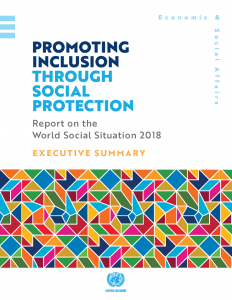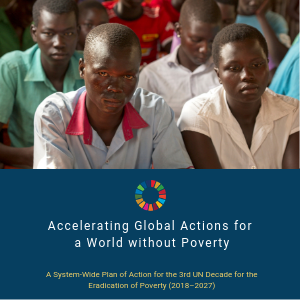
RWSS 2018: Promoting Inclusion Through Social Protection
Universal social protection is a potent development policy tool that can alleviate poverty, inequality and social exclusion. Few countries have been able to reduce poverty and improve living conditions on a broad scale without comprehensive social protection systems in place.
The international community’s consensus on the importance of social protection has been reinforced with the adoption of the 2030 Agenda for Sustainable Development. Target 1.3 of the Sustainable Development Goals stresses the role of social protection in ending poverty in all its forms, as it seeks the implementation of “nationally appropriate social protection measures and systems for all, including floors”. By 2030, the goal is no less than “substantial coverage of the poor and the vulnerable”.
Countries around the world have made noteworthy progress in building and strengthening social protection systems. Still, only 29 per cent of the global population enjoy comprehensive coverage. Even in countries with comprehensive social protection systems in place, poverty persists, particularly among children, youth, older persons, persons with disabilities, migrants, ethnic minorities and indigenous peoples.
 The Report on the World Social Situation 2018 (RWSS 2018) shows that social protection systems can promote inclusive development that leaves no one behind. Specifically, the Report aims to answer three main questions: Who enjoys social protection coverage—and who does not? What are the main barriers to social protection coverage? And how can social protection programmes be designed and implemented to be sensitive to the needs of disadvantaged groups? As the Report indicates, every country can provide some form of social protection to all of its citizens. Expanding access is often a matter of design rather than affordability.
The Report on the World Social Situation 2018 (RWSS 2018) shows that social protection systems can promote inclusive development that leaves no one behind. Specifically, the Report aims to answer three main questions: Who enjoys social protection coverage—and who does not? What are the main barriers to social protection coverage? And how can social protection programmes be designed and implemented to be sensitive to the needs of disadvantaged groups? As the Report indicates, every country can provide some form of social protection to all of its citizens. Expanding access is often a matter of design rather than affordability.
For more information, please download the Executive Summary of the Report on the World Social Situation 2018: Promoting Inclusion through Social Protection.


Follow Us